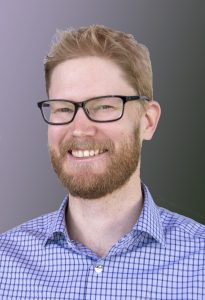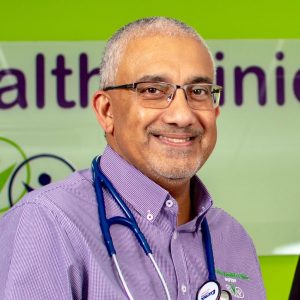Date reviewed: 26 March 2024
Please note that while reasonable care is taken to provide accurate information at the time of creation, we frequently update content and links as needed. If you identify any inconsistencies or broken links, please let us know by email.
Date reviewed: 26 March 2024
Please note that while reasonable care is taken to provide accurate information at the time of creation, we frequently update content and links as needed. If you identify any inconsistencies or broken links, please let us know by email.
Date reviewed: 26 March 2024
Please note that while reasonable care is taken to provide accurate information at the time of creation, we frequently update content and links as needed. If you identify any inconsistencies or broken links, please let us know by email.
Date reviewed: 26 March 2024
Please note that while reasonable care is taken to provide accurate information at the time of creation, we frequently update content and links as needed. If you identify any inconsistencies or broken links, please let us know by email.
Date reviewed: 26 March 2024
Please note that while reasonable care is taken to provide accurate information at the time of creation, we frequently update content and links as needed. If you identify any inconsistencies or broken links, please let us know by email.
Date reviewed: 26 March 2024
Please note that while reasonable care is taken to provide accurate information at the time of creation, we frequently update content and links as needed. If you identify any inconsistencies or broken links, please let us know by email.
The call to GP supervision found Dr Nicholas Hamilton early in his career.
In 2015, two years post fellowship, the young doctor registered as a supervisor “through circumstance” to help facilitate supervisor capacity at the newly opened East Canberra General Practice.

Dr Nicholas Hamilton
“My supervisor during my final training term was practice principal and was setting up another practice from scratch,” Dr Hamilton said.
“It was a good opportunity for me to work in a new building with all new equipment. I became a supervisor out of necessity so the practice could be a training practice.”
In December 2019, GP Synergy presented the supervisor of five years, now aged 38, the Murrumbidgee and ACT Supervisor of the Year Award.
Dr Hamilton has supervised 13 registrars, including some who have returned to the practice post fellowship.
In nominating Dr Hamilton for the award, a grateful registrar said: “This time was invaluable to my learning and ensured that I felt well supported and a valued member of the practice.
“Nick included me in practice discussions and decisions, and I grew to feel part of a community that shared my desire to support our patients while also prioritising our own interests and self-care.”
Dr Hamilton in turn values the support of his former supervisor Dr Clara Tuck Meng Soo, a recipient of the Medal of the Order of Australia for service as a medical practitioner to the community of the Australian Capital Territory.
He is grateful Dr Soo offered the opportunity to work and supervise at her new Canberra practice, and become practice principle and a co-owner so early in his GP career.
“I became a supervisor so early because Dr Soo was very experienced and inspiring,” he said.
Dr Hamilton admits being a young supervisor comes with advantages and challenges.
With a fresh recollection of life as a registrar Dr Hamilton – who is also an examiner – says it is an advantage as a young supervisor to “still be in touch with the examination process”.
“I know what it is like to be in the registrars’ shoes,” he said.
Equally, Dr Hamilton said teaching the reality of uncertainty in general practice was more challenging for a young supervisor than their senior peers.
“I feel more confident now as a supervisor in not always knowing the answers, and teaching that uncertainty is not always a bad thing; it is a part of general practice for doctors of all ages and experience.”
Dr Hamilton favours a pastoral care approach to supervision over didactic teaching sessions, largely because registrars (particularly those with speciality training) already have extensive medical knowledge and access to learning resources.
“General practice is a demanding job and you can feel quite alone; so, a lot of my teaching sessions are pastoral care conversations to help registrars strategise and work out their consultation style.
“One of the hardest things to teach a GP registrar is the need to take charge of patient care into the future; trying to help them make the switch from being reactive to proactive and giving the patient the sense that the doctor is there for them in the long term.”
Date reviewed: 19 July 2022
Please note that while reasonable care is taken to provide accurate information at the time of creation, we frequently update content and links as needed. If you identify any inconsistencies or broken links, please let us know by email.
Dr Sultan’s Quest to ensure each registrar reaches their potential
 GP registrars under Dr Mohammed Sultan’s supervision experience a prime example of cradle-to-grave care in a small community.
GP registrars under Dr Mohammed Sultan’s supervision experience a prime example of cradle-to-grave care in a small community.
In one instance, Dr Sultan treated up to four generations of one family – and happily accepted the family’s invitation to attend a milestone celebration for the family’s oldest member.
As the treating GP until the patient moved into a nursing home at 99, Dr Sultan had little hesitation in clearing his calendar to attend his former patient’s 100th birthday.
“We are a family orientated clinic, treating a few generations of some families,” Dr Sultan said from his clinic in Gatton, Queensland.
“This was my first experience of a patient under my care reaching 100 and I was pleased to be there with his family to celebrate his 100th birthday in 2016.”
Family Health Gatton serves a rural population in the Lockyer Valley, about 90km west of Brisbane, and has a wide demographic base in age, gender and medical conditions treated.
Dr Sultan, who trained and graduated in South Africa has practised in Australia for 20 years, and has supervised GPs for about 12 years.
In this time he has supervised between 20 to 25 registrars, and is a recipient of the GPSA Recognition of Service Award (10-plus years).
“It’s absolutely enjoyable to help young doctors grow and mature into great doctors; seeing them along their journey and knowing you have contributed to their learning as a GP,” Dr Sultan said.
“I always say to my young registrars that they probably know a lot of theory of medicine being fresh from uni, but I’m here to share my experiences as a GP, and teach them the practicalities of general practice along with the business and relationships required for them to ultimately be the best doctor he or she can be for every patient under their care.”
Dr Sultan said his journey as a supervisor was prompted by the excellent training he received as a medical student and young doctor in South Africa “from an amazing group of educators and consultants”.
Having trained in an environment where the learner is shown the procedure once, replicates the procedure, and pays the knowledge and skills forward to future doctors underpins Dr Sultan’s motivation to supervise registrars.
“My motivation to supervise is to educate the future community of doctors to be better skilled and knowledgeable of general practice.”
While supervising the future generation of doctors was a rewarding journey, Dr Sultan said it also brought challenges.
He said these challenges included dealing with different levels of knowledge and skill sets among new registrars, helping registrars better understand the transition from a hospital environment to GP setting, and dealing with the different administrative roles.
Dr Sultan’s advice for other supervisors?
“Patience with new registrars; share practice tricks and tips; and make sure that you pass on education of management of GP business and also employee responsibilities, as they differ so much to hospital.”
Date reviewed: 20 July 2022
Please note that while reasonable care is taken to provide accurate information at the time of creation, we frequently update content and links as needed. If you identify any inconsistencies or broken links, please let us know by email.